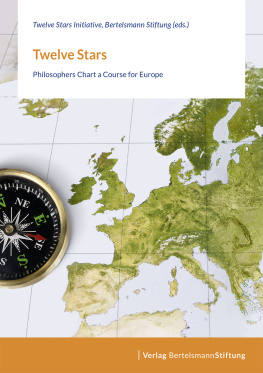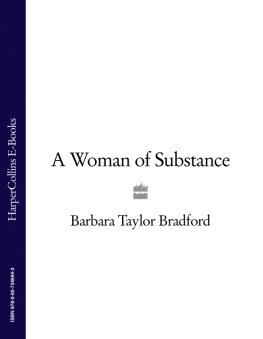Twelve Stars Initiative, Bertelsmann Stiftung (eds.)
Twelve Stars
Philosophers Chart a Course for Europe
Bibliographic information published by the Deutsche Nationalbibliothek
The Deutsche Nationalbibliothek lists this publication in the Deutsche Nationalbibliografie; detailed bibliographic data is available online at http://dnb.dnb.de.
2019 Verlag Bertelsmann Stiftung, Gtersloh
Responsible: Joachim Fritz-Vannahme, Bertelsmann Stiftung
Marco Meyer, Twelve Stars Initiative
Copy editors: Marco Meyer, Joachim Helfer, Ralf Groetker
Production editor: Sabine Reimann
Layout: Heike van Meegdenburg
Cover design: Elisabeth Menke
Cover illustration: deponte-stock.adobe.com
Photos: Mentz, Universitt Hamburg ()
The rights of the remaining portrait photos are held by the authors
Illustrations, Infographics and Typesetting: Martin Karcher, www.mak76.de
Printing: BoD Books on Demand, Norderstedt
ISBN 978-3-86793-874-7 (print)
ISBN 978-3-86793-875-4 (e-book PDF)
ISBN 978-3-86793-876-1 (e-book EPUB)
www.bertelsmann-stiftung.org/publications
Contents
Introduction
The twelve stars in Europes flag symbolize Europes unity in diversity. But in the run-up to the European Elections 2019, Europeans are divided along national, ideological, and cultural lines. The motivation for Twelve Stars is that philosophical thinking and argumentation, when presented in an accessible way, can help in creating a constructive dialogue and in identifying common ground in controversial debates about the European Union. Philosophers discuss what politicians, dependent on short term approval, rarely like to address: Long-term choices for the future that for some while now can only be made on a European level.
More than two dozen philosophers present their proposals for what Europe should do next. The contributors are political philosophers born and working all over Europe.
Every article is grounded in political philosophy. Yet, contrary to the popular clich of the thinker in the ivory-tower, at Twelve Stars philosophers take clear stances on concrete political issues. Each essay presents a bold proposal that Europe can implement now. The result are 24 original and thought-provoking essays that float novel ideas and solutions for the live policy choices that politicians and publics in the European Union now face.
Twelve Stars is not just a collection of essays by philosophers but also a new format of civil-society making itself heard in political discourse. The thinkers whose policy proposals are presented here do not speak as experts or policy advisers but as citizens who like any other citizen happen to have a specific professional perspective, in their case that of philosophy. This perspective is distinguished by a consistent interest in normative orientation. All contributions are part-answers to the same over-arching question: How do we want to live in Europe?
We have subjected all proposals to a special procedure we call the Devils Advocate Test: All proposals were debated and challenged in an online discussion open to anybody who wanted to discuss with the authors. The online debates were made available to the authors in summarized and analysed form as an input to take on board in composing their final essays. Readers who want to check how the philosophers coped with those objections can do so by visiting the online-debate there is a link to the discussion at the end of every essay. For a brief overview we have assembled the most poignant objections at the end of every article.
For this Devils Advocate Test, we have used the online forum Change My View. Change my View distinguishes itself by its established culture of reasoned debate, and a system to reward participants who convince others to change their mind. For the overview at the end of each text, we have structured comments from the online discussion in the categories feasibility, the use, and the risk of any proposal.
The result is more than a collection of philosophical essays on the future of the European Union. You find a selection of comments in the appendix to every essay. There also is a link and QR-tag to the complete discussion. The link takes you also to research on how the authors proposal relates to what is actually happening in European politics, including ongoing political and legislative initiatives. Most importantly, authors reflected on the online debates before writing their article for the volume. As a result, you will see many challenges from the online debate referenced in the articles.
Twelve Stars and the Bertelsmann Stiftung gratefully acknowledge support by the University of Hamburg, and the Heinrich Bll Foundation for the German version of this book.
Marco Meyer
Twelve Stars Initiative
Joachim Helfer
Twelve Stars Initiative
Joachim Fritz-Vannahme
Senior Advisor, Program Europes Future Bertelsmann Stiftung
Christian Kastrop
Director, Program Europes Future Bertelsmann Stiftung
European Solidarity
Philippe Van Parijs
The Euro-Dividend
Proposal
The EU should pay a modest basic income to every legal resident of the European Union or the eurozone, financed by the value added tax.
Motivation
A Euro-Dividend, used as a transfer scheme, would help to buffer asymmetries between EU countries. The Euro-Dividend thus employed would disincentivise residents of poorer countries from migrating. Also, the Euro-Dividend would help the EUs nations to cope with the pressure put upon their welfare systems by the free movement of capital, human capital, goods, and services across borders. Finally, the Euro-Dividend would demonstrate the benefits of EU membership to all its citizens.
Philippe Van Parijs, born in Brussels, Belgium. Professor at the UC Louvain, Belgium, where he founded the Hoover Chair of Economic and Social Ethics.
Criticising is easy, and our imperfect European Union is a deserving target. Making concrete proposals for improvements is a lot harder. Here is one that is simple and radical, yet as I shall argue both reasonable and urgent.
What I propose is a Euro-Dividend. It consists in paying a modest basic income to every legal resident of the European Union or at least of the subset of member states that either have adopted the euro or are committed to doing so once the relevant conditions are met. The idea is to provide each resident with a universal and unconditional income floor that can be supplemented at will by labour income, capital income, and social benefits. The level can vary from country to country to track the cost of living. It can also be lower for the young and higher for the elderly.
A dividend generally refers to the part of the profits of an enterprise that gets distributed among its owners. The Euro-Dividend can be understood as the distribution of part of the gains from European economic integration among the entire population. I suggest financing my proposal with the value added tax. To fund a Euro-Dividend averaging 200 euros per month for all EU residents, one needs to tax the EUs harmonised VAT base at a rate of about 20 percent, which amounts to close to 10 percent of the EUs GDP.
















